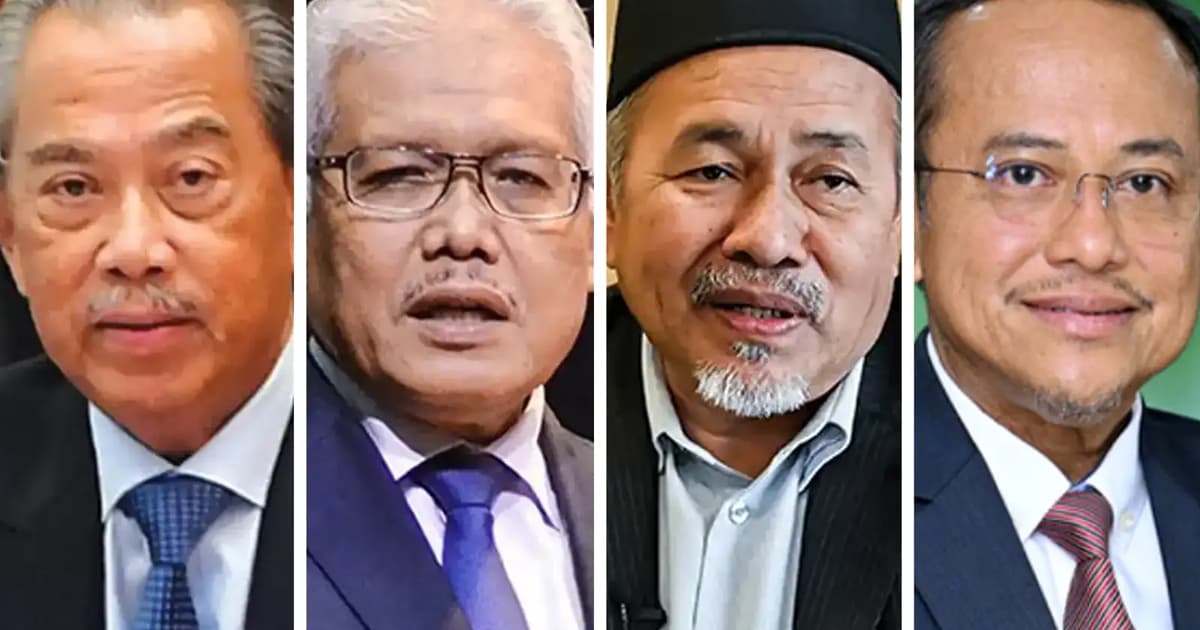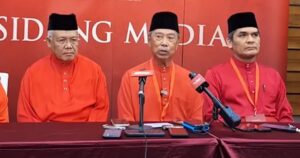
PAS‘s decision to avoid contests for its top five posts may suggest stability but analysts warn it masks deeper weaknesses, with the Islamic party seemingly unable to put forward a credible prime ministerial candidate.
Political analyst Azmi Hassan said Bersatu, despite suggestions of internal turmoil, appears to have more viable nominees for the country’s top executive post.
“No matter what the heat is like in Bersatu, it still has more prime ministerial candidates compared to PAS. That is the reason PAS did not officially put out their candidate — because they do not have anyone suitable,” he told FMT.
Bersatu, in contrast, have two — party president Muhyiddin Yassin and his deputy, Hamzah Zainudin.
Azmi said the likely contenders from PAS, on the other hand, come with heavy baggage.
“Nominating PAS president Abdul Hadi Awang would put off a lot of supporters,” he said.
Azmi said the PAS leadership is unlikely to name Terengganu menteri besar Ahmad Samsuri Mokhtar as its candidate since he is not from the party’s ulamak faction.
“(PAS supporters) would be unhappy with that sort of nomination,” he said.
The analyst also dismissed Kedah menteri besar Sanusi Nor as “too rhetorical” and “not PM material”.
The problem, Azmi claimed, is structural.
“Despite what is happening in Bersatu and no matter how stable PAS is right now, the issue is that PAS does not have the right candidate. Bersatu has known this all along.”
On Sept 7, at its annual general assembly, Bersatu announced Muhyiddin as its prime ministerial candidate.
In response, PAS election director Sanusi Nor immediately warned its coalition partner against making “hasty” nominations.
Deputy president Tuan Ibrahim Tuan Man told FMT there was no need for Perikatan Nasional to rush into naming its own candidate, adding that the opposition coalition should work on strengthening its election machinery and addressing the people’s needs.
PAS stability versus Bersatu chaos
While PAS is projecting stability at its apex, Muhyiddin’s grip on his party appears to be slipping, with open calls for his resignation and a signature campaign demanding a leadership transition.
Political analyst Awang Azman Pawi of Universiti Malaya said the contrast allows PAS to claim the moral high ground in PN.
“PAS can argue that Muhyiddin represents a transitional figure who is losing control of Bersatu, while PAS has a disciplined machinery, strong grassroots and a clearer ideological unity,” he told FMT.
If Muhyiddin is perceived as having passed his peak, PAS could seize the moment, Awang Azman said.
“A leader from PAS, whether Hadi symbolically, or a younger figure such as Tuan Ibrahim or Samsuri, could be PN’s new face heading into the 16th general election.”
Upper hand, but limited options
Political scientist Syaza Shukri of International Islamic University Malaysia says the cracks appearing in Bersatu will give PAS the upper hand at the negotiation table.
“While Bersatu appears divided, PAS holds steady and stable.
“PAS already has more parliamentary seats. This further entrenches PAS as the bigger and better party within PN despite Muhyiddin still being the coalition’s chairman,” she told FMT.
Bersatu has 25 MPs while PAS has 43.
Still, Syaza cautioned that PAS may end up targeting the prime minister’s seat.
“I don’t think PAS seriously wants to put up its own leader as PM candidate, but they have to portray strength and not seem like a junior component.
“If they do, my suspicion is they would go with someone more palatable like Samsuri, even though he faces challenges.”
However, she said the party’s no-contest rule for its top positions cuts both ways.
“It’s good for continuity and stability, in contrast to Bersatu, but limits new leadership and new ideas.
“PAS Youth chief Ahmad Fadhli Shaari may have a good chance in the future, but as of now it’s really the same faces in leadership for so long,” she said.






